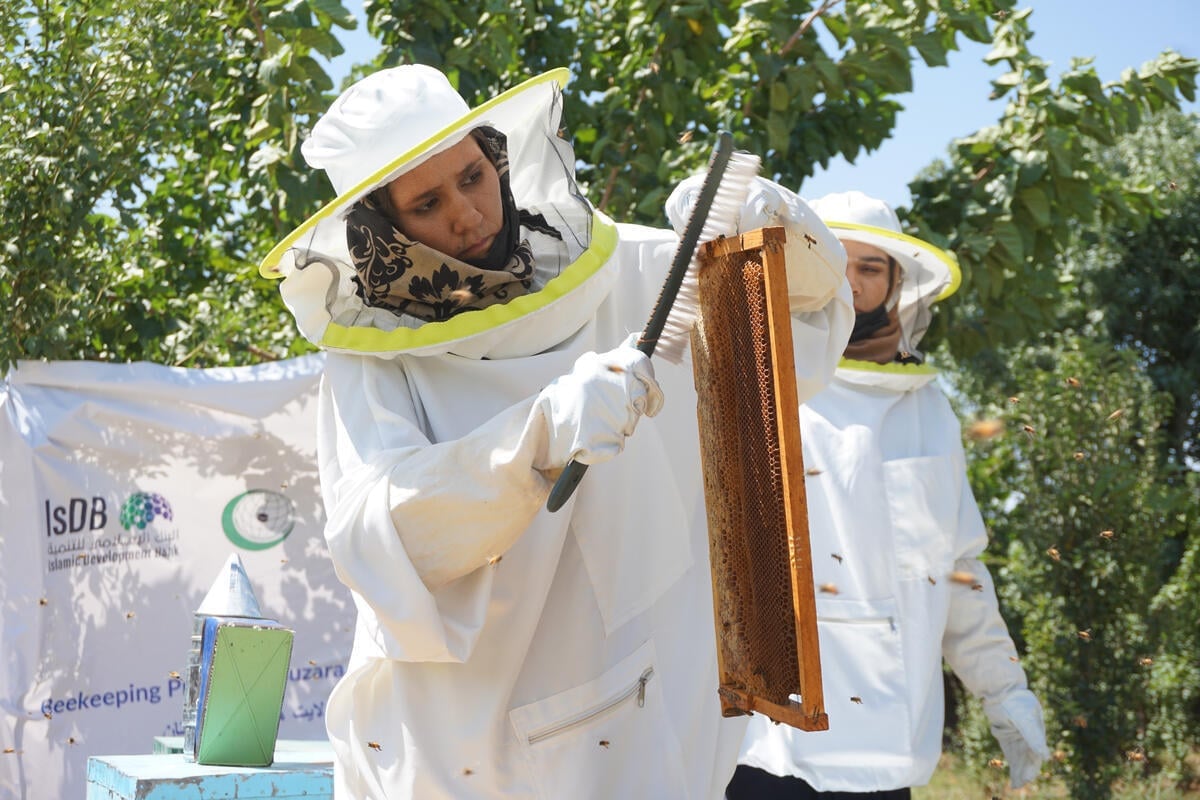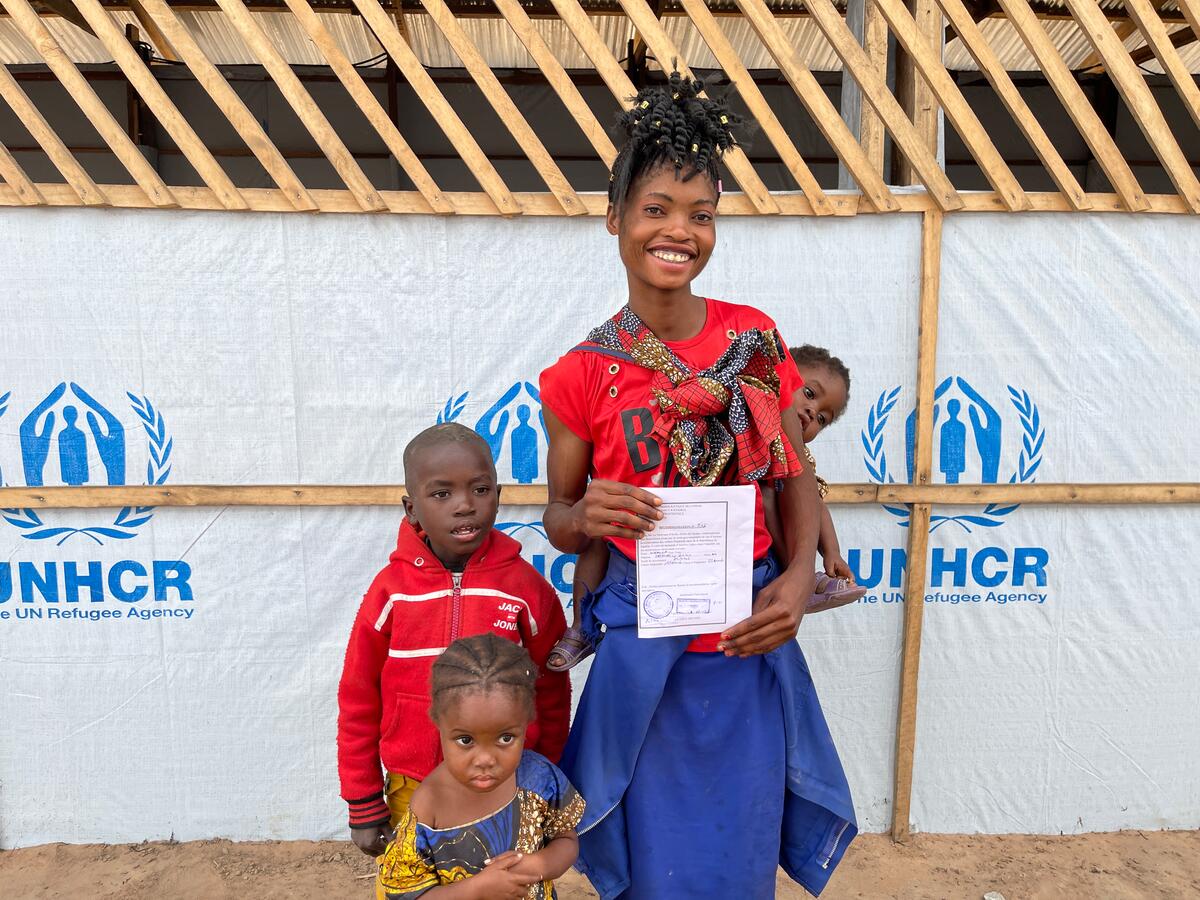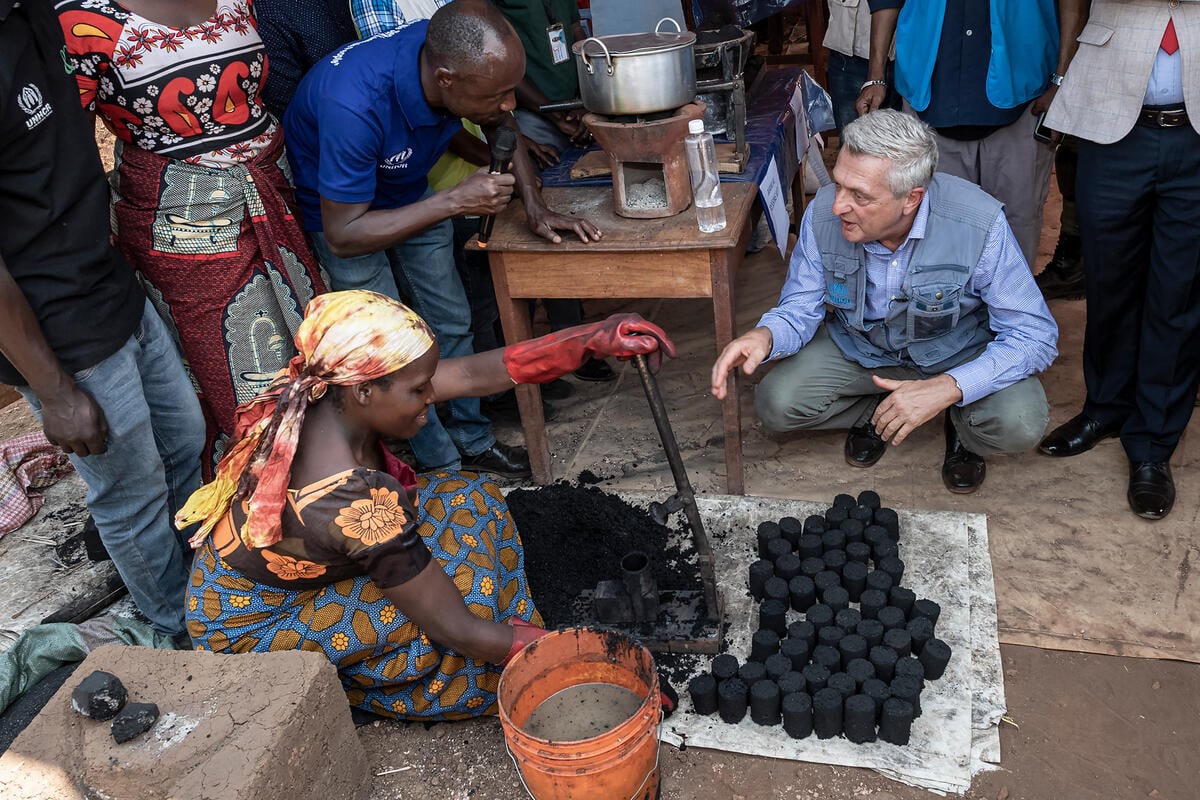Feature: Home for Ramadan after a decade in exile
Feature: Home for Ramadan after a decade in exile

DJIBOUTI (UNHCR) - It's taken more than a decade for Dekka Hassan Hade to put that horrific night behind her - the night she awoke in her home in Somalia to gunshots that signalled her father had been murdered by militiamen.
Quickly gathering up their meagre possessions, she, her husband and two children fled that same night, first to Ethiopia and then to Djibouti, seeking a safe haven.
"My family and I ran from the militias after they killed my father," says Dekka. "We walked for two days before we could find a car to escape in."
Her story is typical of tens of thousands of Somalis who fled the country in the aftermath of the 1991 coup d'état that toppled the regime of Siad Barre.
It's a measure of Dekka's courage and optimism that she - and thousands like her - are now signing up to leave Djibouti and rebuild their lives in north-western Somalia, the self-declared independent state of Somaliland. (Despite not being internationally recognised, Somaliland has a working political system, government institutions, a police force and its own currency, and is largely peaceful.)
Dekka and her family left Djibouti on Wednesday, on the last convoy before the Islamic holy month of Ramadan. There are still more than 18,000 Somalis living in Djibouti's two refugee camps (Holl-Holl and Ali Addeh) and the Aour-Aoussa transit centre.
Since July 2002, when the first 2,000 refugees went home from Djibouti to Somaliland, the UN refugee agency has been promoting repatriation to Somaliland. Efforts to persuade refugees to leave the Djibouti camps include UNHCR-sponsored "go-and-see" visits that allow refugees to assess for themselves conditions back home, and spread the word around the Djibouti camps.
This year alone, 7,400 refugees have returned to Somaliland on 13 UNHCR convoys from Djibouti, with two more convoys planned between the end of Ramadan in November and the end of the year. Before they leave, refugees are given a small amount of cash and some household goods to ease their transition - cooking pots, kitchen utensils, jerry cans and a tarpaulin - as well as a nine-month supply of food from UNHCR's sister UN agency, the World Food Programme.
"We have increasingly seen a genuine desire on the part of refugees within both camps to return home," says UNHCR's Representative in Djibouti, William Collins Asare.
"Through the assistance of the international community and the support of the host government, UNHCR has offered a tremendous amount of aid to these refugees," says Asare. "But I think refugees are also aware that residing in the camps indefinitely is not a durable solution, especially when the security situation has normalised within their country of origin."
Asare says there are other hopeful signs as well: "With the inauguration of the Somali Parliament in Nairobi, and other recent peace initiatives in that country, we may see a demand from refugees originating elsewhere in Somalia to return home."
Many of the refugees from Somaliland have lived in Djibouti long enough to marry and raise families. Dekka and her husband had three more children after they got to Ali Addeh refugee camp. She prizes the opportunity her children have had to get an education in the camp's schools.
Last year her husband, Dine, decided to return to Somaliland, to see if the time was right for his family to come home. The answer was yes - he sent word to Dekka that he had even built a house to welcome the family back to Boroma town.
Having never seen Somaliland, Dekka's six-year-old son, Nour Dine, has mixed feelings about leaving friends behind in the camp where he was born. "Some of my friends will be going to Somaliland with me," the boy says. "And for the rest of my friends I'll just have to kiss them and say goodbye."
Then he has a cheery thought: "Besides, I am tired of eating lentils" - one of the nutritious but boring foods routinely distributed to refugees in camps.
Life is still hard in Somaliland, but UNHCR is working with partners - the UN Development Programme, the International Labour Organization, the Danish Refugee Council and Save the Children - to make sure returnees have the basic requirements to restart their lives in this desperately-poor part of the world.
"In each area of return, we have worked hard to ensure that at least the basic services are available - water, health, education and sanitation," says Simone Wolken, UNHCR's Representative in Somalia.
"The required infrastructure and the most vital services are being provided, and this of course benefits the communities to which the refugees are returning," she adds. "This uplifts the living standards for all."
Funding for humanitarian aid and economic development remains a problem, though. Until October, the UN - the main channel for assistance to Somalia - has received only 30 percent of the $112 million it tried to raise for the most crucial projects.
UNHCR has been able to step in on a small scale, with, for example, a highly-successful micro-credit scheme for Somali women who are raising families alone. They have used the money to buy and sell animals, set up small general stores and, in an especially enterprising move, sell cold drinks on the heavily-travelled scorching road between Somaliland and Djibouti.

Such developments have given new hope to many refugees in Djibouti, like Omar Osman, a 29-year-old man who also hails from Boroma. He was separated from his relatives while fleeing the violence of 1991, but now has made contact with them back in Somaliland and has decided to return from Djibouti with his wife and children.
"I don't want to see my children grow up in a refugee camp," he says. "Somaliland is a new country with opportunities and I want to be part of that."
By Dexter Wilburg
UNHCR Djibouti









